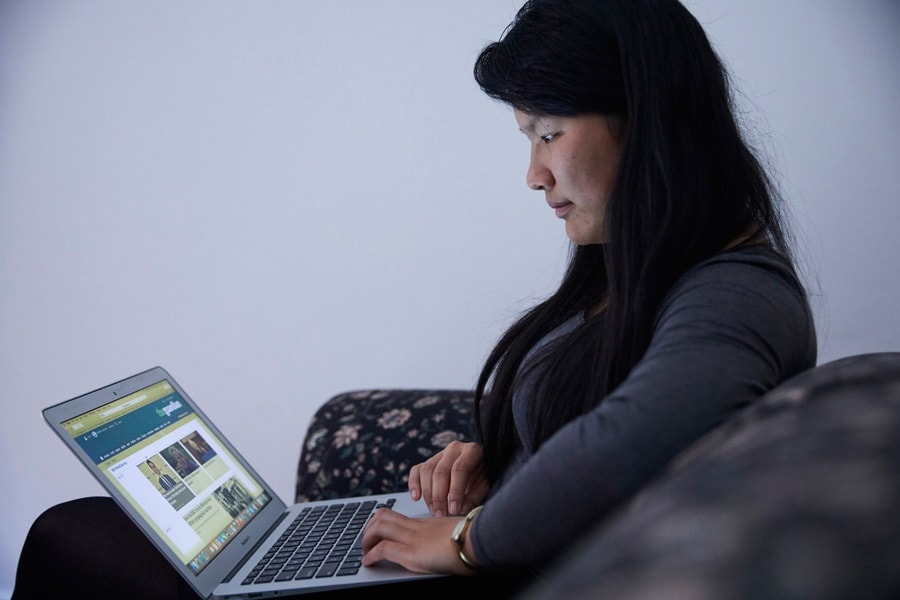The world of nursing is continually changing as new practices, policies, and treatments are always in development. Keeping on top of the latest trends is essential for nurses at all stages of their careers, committing them to a life-long journey of learning. For those just starting out in their nursing careers, keeping on top of the latest trends can help them get their professional life off to the best possible start.
The increasing demand for nurses
The growing and aging population in both the US and around the world as a whole has led to a global shortage of nurses. This nursing shortfall is a problem that will need solving, and it means that nursing graduates have a better chance of finding secure, long-term employment that meets their needs. It also means that there is plenty of opportunity for progression and diversification in nursing roles.
The increase in online training
In recent years we have seen an increase in online learning across a variety of sectors, a trend that was accelerated by the COVID-19 pandemic. Nurse training is no exception to this. Many nursing graduates will have gained their bachelor’s degree in nursing through high-quality online providers and will be just as prepared for their nursing career as those who studied in person. Regardless of how you gained your first nursing qualification, an online course can be an excellent choice for further study. Nurses who hope to become family nurse practitioners should take a look at the Carson-Newman FNP program. Through 100% online coursework that can be carried out to a schedule that supports a good work-life balance, and clinical placements that the university helps arrange in your local area, the fully credited MSN-FNP program equips you with the skills and knowledge needed for this rewarding area of nursing.
Virtual simulation
Virtual simulation is one of the most exciting advances in technology and will have significant implications for nurses. With the rise in online courses, simulations can be used to give students an effective teaching experience in their own homes and reduce the necessity for physical places of learning. It can also be used to address the shortage of nurse educators while continuing to train new nurses.
This is one technology that is likely to become increasingly sophisticated and, in the future, nurses may well spend increasing amounts of time training through simulations before working with real patients. However, due to the importance of core nursing values such as compassion, empathy, and a good bedside manner, it is unlikely that VR will ever fully replace the clinical rotations that give trainee nurses hands-on experience.
Telehealth
Improved communications technology means that patients and nurses no longer need to be physically together for the patient to receive treatment. Telehealth has a number of advantages and allows patients to receive medical advice in the comfort of their homes. Telehealth can save patients and nurses from traveling, something that is particularly valuable in rural areas. Telehealth is often used in checking up on patients between clinical visits, helping them in the management of chronic health conditions, or determining whether a physical check-up or treatment is needed. While it has many advantages, nurses do also need to be aware of the risks of using online platforms to transmit medical information.
Home health
Rather than keep patients in hospitals long-term while they recover, the trend towards home health allows patients to recuperate at home. Traveling nurses are involved in this, offering support to patients in recuperation or managing long-term health conditions through education, medication, and wound management. Traveling nurses may also work with hospice and palliative care providers, offering end-of-life care for patients, allowing them to spend their last days in familiar surroundings.
Influencing policy
Nursing has come a long way since the days when a nurse was merely an assistant to the all-important doctor. Today nursing is a respected and highly qualified profession and is recognized for the vital role it plays in healthcare.
Nursing organizations are increasingly listened to by policymakers both in individual healthcare settings and on a local, state, and federal level. As experienced professionals who work closely with patients, nurses are being seen as advocates for patients, and their opinions are having an increasing impact on the future of healthcare.
Self-care for nurses
Nursing is a rewarding and exciting career where no two days will be the same. But it is also a demanding career both physically and emotionally. While this has always been the case, the COVID-19 pandemic highlighted the demands on nurses like never before. The phrase ‘physician heal thyself’ should also be applied to nurses and a very welcome trend is the realization of the need to look after the physical and emotional well-being of nurses.
Employers recognize that those who promote self-care and maintain a supportive, healthy working environment are more likely to retain their nurses and attract new recruits with less time off needed for burnout and stress. This in turn will lead to nurses being in a better place physically and mentally to deliver high standards of patient care.
For graduate nurses just entering the profession, this should result in an even higher level of job satisfaction and a better quality of life overall.
Conclusion
The shortage of nurses combined with increasing demand is a problem for society that nations across the world will need to address. As a nursing graduate, it is important to be aware of trends in nursing, as they will allow you to keep up-to-date with the demands of the profession. By keeping on top of key trends and acquiring the relevant qualifications, nursing graduates can ensure they have long and satisfying careers.
























